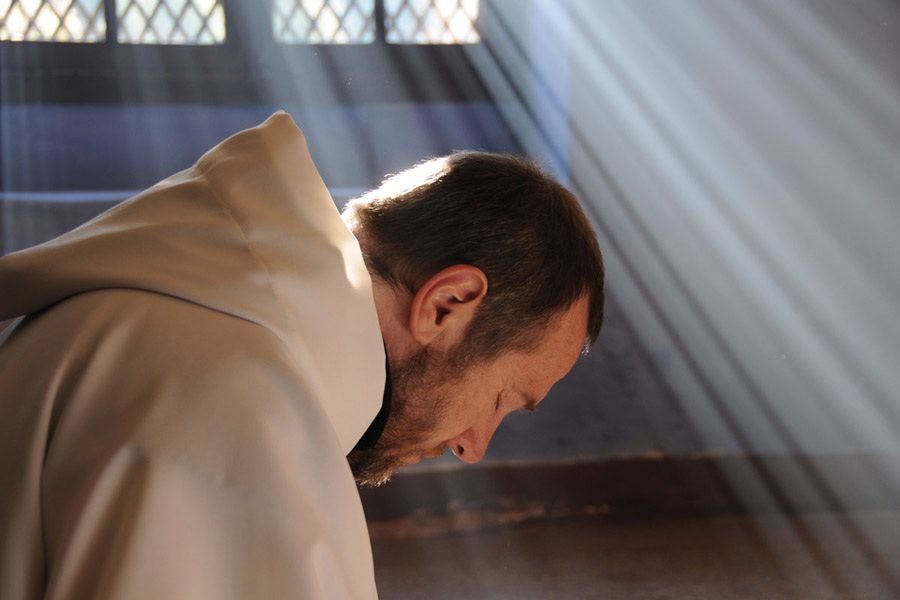Cast: Lambert Wilson, Michael Lonsdale, Olivier Rabourdin
Xavier Beauvois’ film spent four weeks at the top of the French box office after its September release, such was the national esteem held for the director and his chosen subject – the beheading of a group of French monks in North Africa in the mid-‘90s. The film is beautifully shot and masterfully sparing in what it is willing to show to its audience. Visitors arrive at the monastery with stories of road blocks, burnt out buses, and rioting gangs, but we never really leave the convent. In this way the film feels more like a stage play – there is a unity of time and space that makes the drama even more visceral and intimate.
The central performances are superb, especially those of the ageing, cuddly Michael Lonsdale and the frighteningly reasonable and saintly calm Lambert Wilson (who plays Christian, the head of the monastery). There is a synergy between the quiet and gripping performances and the spare cinematography that culminates with a spectacular scene during dinner, when the camera patiently lingers on each wrinkled, resolute, monastic face as the moving score reaches its crescendo… it is quiet, patient, unnoticed, but thoroughly engrossing.
If there is a criticism that can be levelled against this film it is that Beauvois seems to confident of what he is trying to say, and there is little room for the sort of mystifying ambiguity that cuts through most great European films. He knows exactly what his message is and exactly how he will express himself through the characters. In such a long and pensive film, it would have been more interesting if there were a sense of tearing at the heart of the premise… a dialectic played out by the characters. Unfortunately this is never the case, and Beauvois’ control over his thoughts is as thorough and totalitarian as the control Christian has over his subordinate monks.
Xavier Beauvois’ film spent four weeks at the top of the French box office after its September release, such was the national esteem held for the director and his chosen subject – the beheading of a group of French monks in North Africa in the mid-‘90s. The film is beautifully shot and masterfully sparing in what it is willing to show to its audience. Visitors arrive at the monastery with stories of road blocks, burnt out buses, and rioting gangs, but we never really leave the convent. In this way the film feels more like a stage play – there is a unity of time and space that makes the drama even more visceral and intimate.
The central performances are superb, especially those of the ageing, cuddly Michael Lonsdale and the frighteningly reasonable and saintly calm Lambert Wilson (who plays Christian, the head of the monastery). There is a synergy between the quiet and gripping performances and the spare cinematography that culminates with a spectacular scene during dinner, when the camera patiently lingers on each wrinkled, resolute, monastic face as the moving score reaches its crescendo… it is quiet, patient, unnoticed, but thoroughly engrossing.
If there is a criticism that can be levelled against this film it is that Beauvois seems to confident of what he is trying to say, and there is little room for the sort of mystifying ambiguity that cuts through most great European films. He knows exactly what his message is and exactly how he will express himself through the characters. In such a long and pensive film, it would have been more interesting if there were a sense of tearing at the heart of the premise… a dialectic played out by the characters. Unfortunately this is never the case, and Beauvois’ control over his thoughts is as thorough and totalitarian as the control Christian has over his subordinate monks.






No comments :
Post a Comment